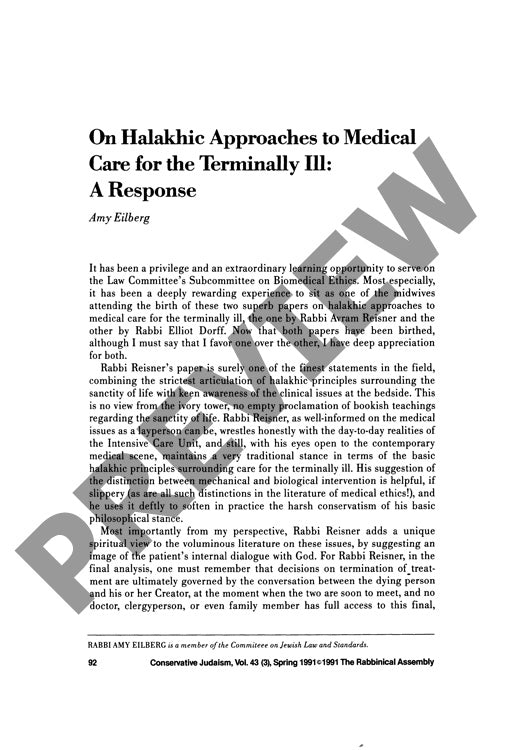On Halakhic Approaches to Medical Care F
Couldn't load pickup availability
When terminally ill patients face end-of-life medical decisions, Jewish law (halakha) offers competing frameworks that challenge both religious authorities and medical practitioners. Through a comparative analysis of Rabbi Avram Reisner's and Rabbi Elliot Dorff's halakhic interpretations, fundamental tensions emerge between absolutist readings of Jewish law and adaptive approaches that acknowledge modern medical capabilities. Reisner maintains traditional halakhic principles on life's sanctity while incorporating clinical realities through distinctions between mechanical and biological interventions, emphasizing the patient's spiritual dialogue with God. Dorff, alternatively, transforms halakhic "rules" into "principles" applicable to contemporary medical contexts, rehabilitating categories such as terefah, letovato, and mental anguish provisions to address modern bioethical dilemmas. While both approaches maintain halakhic integrity, Dorff's framework provides greater flexibility for addressing cases unimagined by traditional authorities. Contemporary halakhic interpretation must consider the intent of life-affirming traditions when confronting modern intensive care realities, supporting approaches that recognize when prolonging life may contradict rather than honor the sanctity of life principle.

More Information
-
Physical Description
-
Publication Information
Published 1991
ISBN
-
Publication Credits
Amy Eilberg

